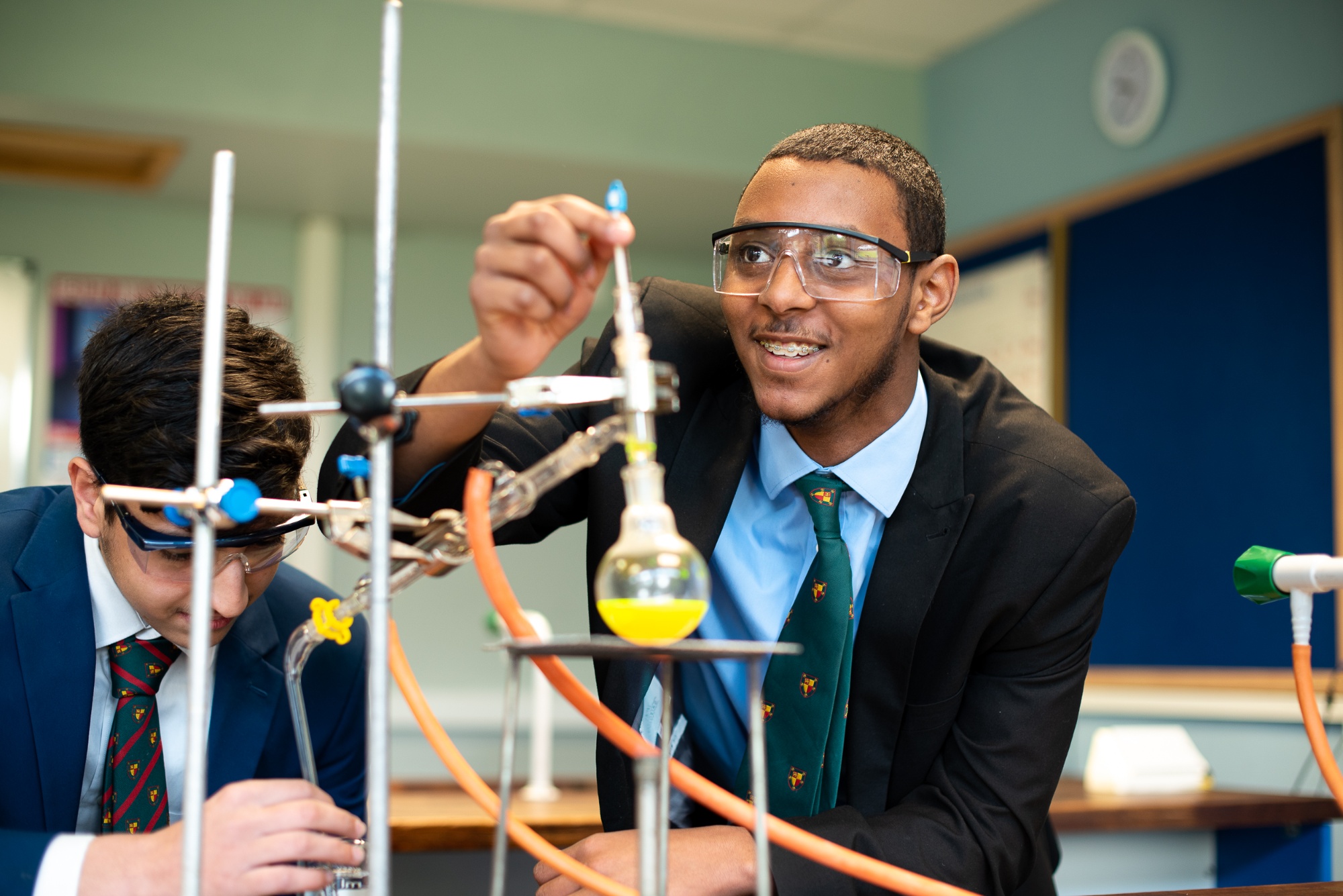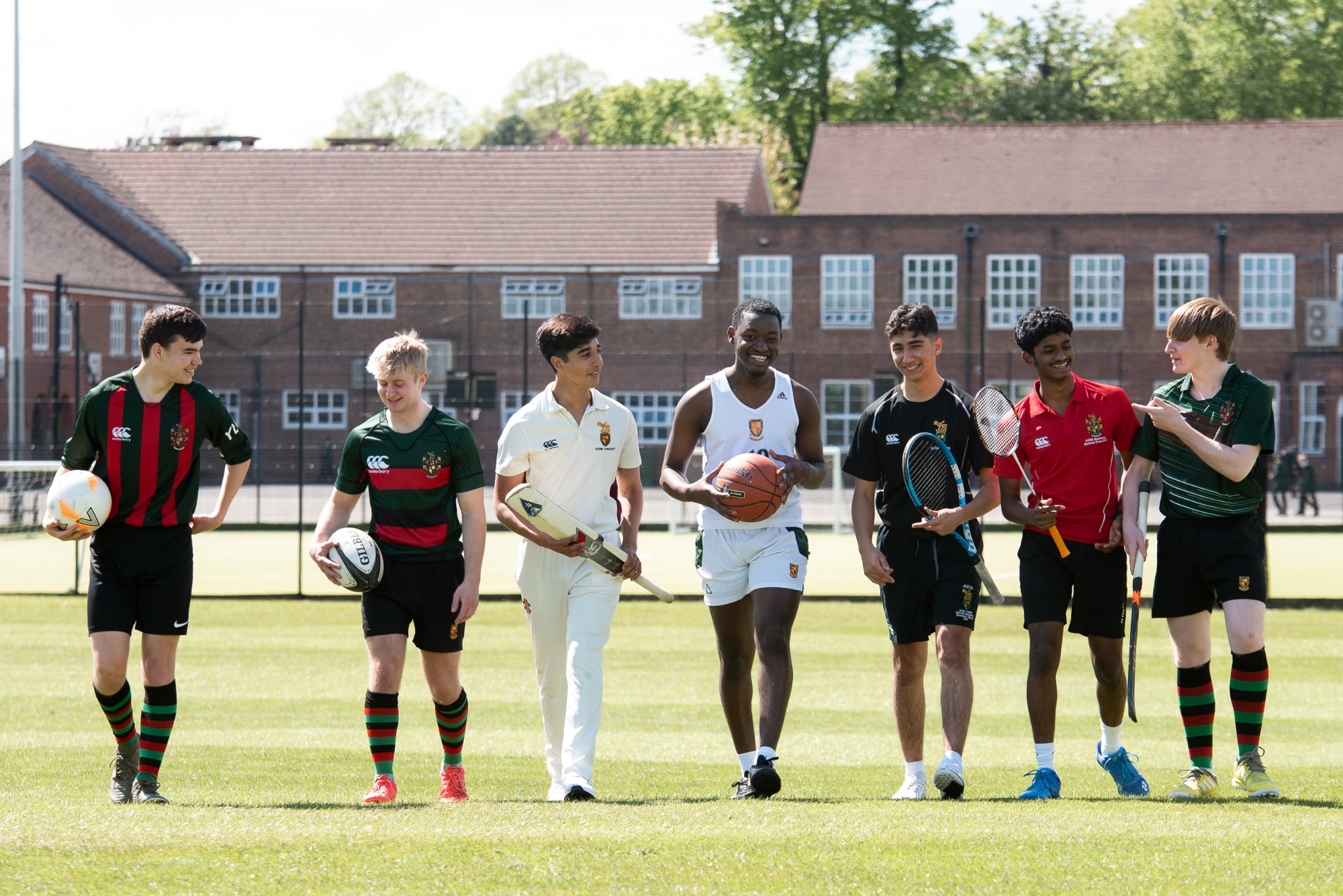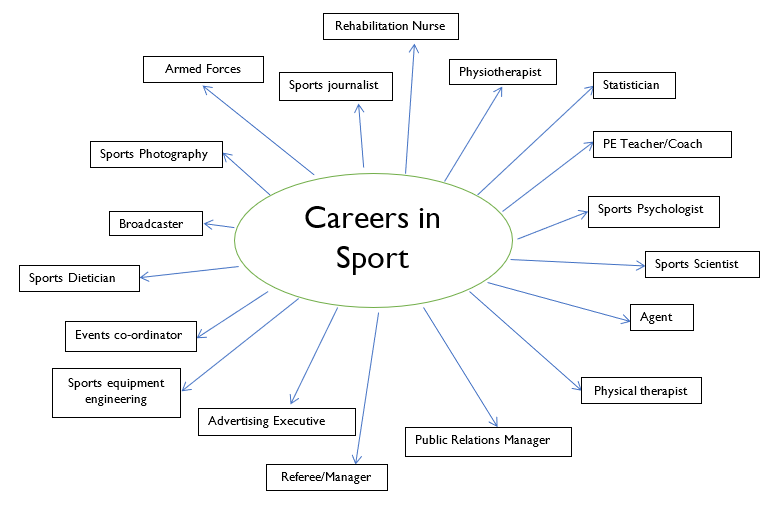6th Form Prospectus



LEADING THE WAY
Altrincham Grammar School for Boys is established as one of the country’s leading state selective schools for boys ages 11 to 18. Since the 1990’s the Sixth Form has seen considerable development, both in size and facilities, to the extent that Sixth Form students now constitute a quarter of the total School roll. AGSB offers a broad and balanced curriculum that will assist in equipping Sixth Form students with the skills required for employment or Higher Education. We welcome students who are willing to work hard and contribute to the life of the school. Altrincham Grammar School for Boys offers:
- A wide range of A Level courses which will provide a suitable foundation for degree level study
- A range of curricular options to support their acquisition of the wider skills that will be essential for success in their lives and future careers
- A strong record of A Level success, both in terms of pass rate and the percentage of entries achieving A*, A or B grades
- High numbers of students going on to leading universities, including Oxbridge and other Russell Group Universities
- A structured and supportive learning environment with appropriate guidance and pastoral support
- A wide range of extra-curricular activities which will provide opportunities for leadership and responsibility
If you need a second opinion, ask our Sixth Form students. The overwhelming majority have enjoyed their Sixth Form course and the quality of teaching and pastoral support they have been given. Every year we ask our departing Year 13 students their views on their Sixth Form experience. The in-depth comments we receive result in real change to the benefit of future students.

“The competition is tangible and a huge incentive to work”
“Staff have been especially helpful in organising work shadowing and preparing me for applications and interviews”
Welcome from the Sixth Form Head
I am delighted that you would like to secure a place in our Sixth Form. Altrincham Grammar School for Boys is one of the country’s leading state selective schools and our Sixth Form is the pinnacle of a student’s school career.
“Students in the sixth form are an example and inspiration to younger pupils. They display high aspirations, strength of character and a can-do attitude to learning. They do so with humility.” Ofsted 2022
We offer a broad and balanced curriculum that will equip students with the skills for success in employment and Higher Education. We welcome students who are willing to work hard and contribute to the life of the school.
There are a number of places available for external applicants and I anticipate making around 20 offers to external students to study in September 2026. Whilst places do exist for studying the full range of STEM subjects, we do have a number of places available to study Humanities, Arts and Languages. You will find a high quality of Teaching and Learning, alongside similarly able students, in whatever subject or combination of subjects you choose.
Our Sixth Form is not just about the pursuit of academic excellence. We also want our students to get involved and a variety of opportunities exist for them to contribute to the general life of the school and the wider community. Our Sixth Form students “are positive role models and a shining example to their peers.” Ofsted 2022
If you need a second opinion about any of our subjects or the Sixth Form experience, please talk to any of our students during our Open Evening event. Should you have any questions about our Sixth Form, please do not hesitate to get in touch.
Tom Murray
Head of Sixth Form
2026 Admissions Criteria
Entry into Year 12
Experience shows that those who have not reached a high level at GCSE are rarely successful in an academic sixth form offering only ‘A’ levels. That is not to say they may not be capable of passing ‘A’ levels on a mixed course such as those offered by some other institutions, but simply that the traditional sixth form, offering a package of 3 or 4 ‘A’ Levels, is not the best place for them. We therefore make the following stipulation:
For those offered a place in the Sixth Form, the requirement for entry is that students must have achieved a minimum Attainment 8 score of 62 and at least a grade 5 in GCSE English Language and Mathematics. Applicants must also achieve the minimum grade in the related GCSE subjects in order to study at A level.
Please note that, for the purposes of our entry criteria, the Attainment 8 score is defined as a summation of the grades students achieve in their best 8 GCSEs, including Mathematics and English Language. A student's Mathematics GCSE and English Language GCSE grades will be included in this measure and both the Mathematics and English Language grades will be double weighted. For example, a score of 8 in English Language will be awarded 16 points towards the minimum target of 62. The remaining 6 GCSEs are not double weighted and can come from any other GCSE subject studied by the students as part of the AGSB curriculum, or equivalent subjects at a different school.
Each year we are delighted to welcome a number of students from other schools who choose to join our Sixth Form. The criteria applied to their admission are the same as those for internal candidates set out above, although, of course this will depend on places being available. Where places for external candidates are likely to be available, these will initially be allocated in accordance with our admission criteria.
- External candidates are encouraged to apply between mid-October and early February during Year 11. Deadlines and details can be found on our online application page External Application Forms
- All internal Year 11 students will be issued with application forms in January and these should be returned in February.
- A copy of our Admissions Policy is available on the school's website at Admission Policies
subjects available
The number of combinations theoretically possible is far in excess of what is, in practice, possible to timetable. Therefore, it must be understood that while we will do our best to accommodate all first choices, it may not be possible, or indeed desirable, to provide all combinations.
- Art
- Biology
- Business Studies
- Chemistry
- Computer Science
- Design & Technology
- Economics
- English Language
- English Literature
- Further Mathematics
- French
- Geography
- Geology
- German
- Government and Politics
- History
- Latin
- Mathematics
- Music
- Philosophy
- Physical Education
- Physics
- Religious Studies
- Spanish
(All of these subjects are on offer but the School reserves the right to withdraw any subject where the number of students interested is too low.)
Students will be asked to select at least three A-level subjects to study throughout Year 12 and 13. Some students may choose to study 4 A-levels. This is restricted to students choosing to study Further Mathematics and/or those achieving a high overall attainment score (greater than 80). Students will be asked to commit to studying these 4 A-levels for the full two years. A minimum of a grade 6 is required at GCSE in order to study any subject at A-Level. The exceptions to this rule are Biology, Chemistry, Mathematics and Physics which require a minimum of a grade 7 at GCSE and Further Mathematics which requires a minimum of a grade 8 at GCSE. It is highly recommended that students choosing to study Further Maths have attained a grade 9 in GCSE Mathematics.

- Careers Advice
- Work Shadowing
- Programme of careers talks throughout the year

- The Enrichment Programme (including lectures,
mentoring and study skills)
- Completion of a relevant MOOC (Massive Open Online
Course) or EPQ (Extended Project Qualification)
- Physical Education and Volunteering
OPTIONAL CURRICULUM
In addition to their A-levels students should choose at least one of the following three options, this will add depth to their experience and improve their personal statement and CV:
1) Massive Open Online Course (MOOC)
There is a wide range of MOOCs available. Students can select their own MOOC to complete, in consultation with their mentor. The MOOC could be related to their chosen future career/degree studies or related to a topic of wider interest. Students will have access to Unifrog which contains a useful tool for searching for relevant MOOCs.
2) Extended Project Qualification (EPQ)
The AQA Extended Project Qualification is a stand-alone qualification started towards the end of Year 12 and completed in Year 13. The EPQ requires commitment and passion, but rewards with some excellent skills in preparation for further study. It is worth 50% of the UCAS points awarded for a full A2 level and is highly regarded by leading Universities. Pupils choose their own topics and are assigned a supervisor in the School to guide them. Assessed work will be in the form of a 5,000-word essay or a 1,000-word essay and some form of artefact, video etc. In addition to this, pupils must keep a monitoring log of their progress and present their completed project to an audience. The project title cannot be on any element that is included in the syllabi that you are studying for A Level.
3) Fourth A-Level
Some students choose to pursue 4 A-Levels throughout Year 12 and Year 13; this includes those studying Further Mathematics. They will not have to choose between either a MOOC or an EPQ. However, some students may wish to undertake an EPQ following discussion with the Head of Sixth Form or a MOOC. A very small number of students may also choose to study 5 A-Levels
Extra-Curricular
The School offers a wide range of activities which in previous years has included:
- An award winning Esports team • Student Investor Challenge
- Chess Club • Drama • Music – the Choir, Barbershop, School Orchestra, Swing Band
- Debating, Model United Nations and the Sixth Form Book Club (with AGGS and SGS)
- Public speaking competitions including ESU national competitions
- Christian Union, Islamic Society, Hindu and Sikh Society
- AGSB Volunteers Programme and Charity Work
- School sport – Soccer, Rugby, Cricket, Hockey
- The Library is also a valuable resource available to all students.
Languages Exchanges
MFL students regularly enjoy immersive and very rewarding annual exchanges /Trips to France, Germany and Spain where they gain a greater sense of independence and confidence in their chosen foreign language(s). Work Experience Abroad A number of dynamic students have undertaken work experience placements abroad during School holidays with a reputable and well-established company.
Student Investor Challenge
All students in Years 12 and 13 can take part in this national share trading competition. Additional classes are held outside of lessons to inform students about how to make the right decisions.
Drama
Drama is a performing art. It is a discipline that has a unique appeal, it has immediacy; a “here and now impact” that creates a bond between performers and audience. A shared experience which at its very best is utterly compelling and absorbing: loosely translated as – it’s great fun! We are proud to say that extra-curricular drama at AGSB is vital and exciting. Our productions range from the magical, “A Midsummer Night’s Dream” to the fabulous, “History Boys”, and most recently, “West Side story”. We welcome any budding actors or technical crew alike to come and join the team at AGSB.
Music
Sixth Formers are welcome to join staff and junior boys in the School Choir which performs concerts at Christmas and in the Spring. They are also welcome to participate in any of the School instrumental groups; the Swing Band, the Orchestra or the Concert Band. Instrumental or vocal Lessons continue to be available from beginners to advanced levels. For more details of the above see the Music Department’s entry earlier in this prospectus.
Debating Society
Jointly run by staff and a committee of Sixth Formers, the Debating Society meets one lunchtime every week debating a wide range of political, economic and ethical issues. In recent years, members of the society have had great success reaching the latter stages of a number of national public speaking and debating competitions. The society liaises with several local schools to hold regular joint debates while also giving sixth formers wider experience of organising and mentoring students lower down the School.
Model United Nations
The School's MUN Society offers students an opportunity to hone their debating skills while also adding a unique role-play/drama element, with “delegates” debating “in role” representing different member states. MUN conferences are regularly held at Manchester Grammar School, Withington Girls’ and Cheadle Hulme School. The Society is largely student-run and provides a great grounding for those interested in careers in law, the civil service, politics and public life.
AGSB Volunteers
AGSB Volunteers is our Community Service Scheme. Our target is that all of our Sixth Form students complete some form of volunteering whilst they are in the Sixth Form. Students take part in the various activities available, either on Wednesday afternoons or during another morning or afternoon when they have one or two free periods.
The range of opportunities we offer in the community is extensive and is subject to change as we try to cater for the interests of the students involved. A number of our Sixth Formers visit primary and junior schools or help in charity shops. They often choose to help at schools they attended when they were younger. Another popular option is to assist in retirement and nursing homes. The residents look forward to visits by young people who can chat to them or play cards or board games. Several students opt to do their Community Service at hospitals, although the number of places is limited and students must find and progress their own applications.
Through these activities, we are keen to help the community, but also to broaden the experience of our students and give them an insight into aspects of delivering services to local people. Our students also find their community service option a very useful topic to include when completing application forms for employment or for university or college courses.
School Sport
As mentioned previously, there are many opportunities to take part in sport, whether in teams or otherwise. Most activities are now held on-site within the Sports Development.
Careers and links with industry
Aspirations
We provide information to help our Sixth Form students develop their academic, extra-curricular and social interests into their “Aspirations”. Through the opportunities listed in the next sections of this document and many other events and activities we work closely with students to ensure they consider many post-18 options which include Higher Education, Apprenticeships, Sponsorship, Gap Years, Year in Industry and many more. There is a wide range of information and a calendar of events, which we hold within “The Engine”, a web-based resource that students can access, which includes a programme of visiting speakers, advice on job applications and employment rights, student finance, volunteering and much more.
Careers Guidance
All members of the Sixth Form are encouraged to consult with members of staff about education and employment opportunities at 18+. A student may, at any time, request an interview with our own Head of Careers, Mr Gallamore. This service and the Sixth Form team provide help and advice on a wide variety of matters including:
- Higher Education Choices
- HE procedure
- Electronic Application System
- Employment Opportunities at 18
- Year in Industry
- Interview techniques and practice
- Apprenticeship opportunities.
Unifrog is an excellent tool which is made available to all students throughout their time in the Sixth Form.
Work Shadowing/Internships
All Year 12 students are required to arrange a Work Shadowing/Internship Placement in the last week of the Summer term. This enables the student to shadow a professional in a career area in which he himself may be interested in the future.
subject requirements
art
Students intending to take ‘A’ level Art should normally have attained at least a grade 6 at GCSE in Art & Design. Those who have not taken Art & Design for GCSE are not precluded from taking this ‘A’ level, but suitable evidence would need to exist as to the student’s suitability for the course. Anyone in those circumstances MUST discuss their wishes with the Head of Art at the earliest opportunity during Year 11.
The Course and Examinations
The A Level:
- Component 1: Personal Investigation 60% of total A Level marks. A personal project of practical work, set through discussion with the teachers, and supported by 1000 – 3000 words. Marked by the Centre, moderated by AQA.
- Component 2: Externally Set Assignment 40% of total A Level marks. An exam paper containing a number of starting points will be provided by AQA, with a fixed period of preparatory time and a supervised time of fifteen hours for the final piece of work. Marked by the Centre, moderated by AQA.
- Combination of Subjects A Level Art and Design can work in any combination of subjects. Technology is a frequent companion subject, and many students benefit greatly from the natural relationship of these two subjects. It may also surprise pupils to know, however, that in recent years we have had a number of students intending to read medicine at university who have taken Art and Design through to A2 as a fourth A Level. In a highly competitive environment where a full set of top grades in sciences may be just a starting point, universities may well look to see what else students have done outside of their chosen field. Further and Higher Education.
Please go to our curriculum page using the link below for further details:
biology
BIOLOGY
Studying Biology gives you the skills and opportunities to advance human knowledge and understanding in today’s world, in order to make a difference to tomorrow’s world. A background in Biology gives you transferable skills and increases your career options so you can adapt to the world changing around you. Biology is always relevant to life!
Entry Requirements
A level Biology is a demanding academic subject. A minimum of a grade 7 is required in GCSE Biology or a grade 77 in Combined Science. Students embarking on this course should have a real interest in the subject. To be successful in Biology at this level, students will have to commit a substantial amount of time to homework and learning. Practical work is an integral part of the course and students must be fully involved in this aspect of the course at all levels.
Please go to our curriculum page using the link below for further details:
business studies
Students considering reading a Business degree at university should seriously contemplate studying Business Studies A-level. This would provide an invaluable platform for progression onto the higher level course. Business Studies combines well with other academic subjects at university, providing many avenues for a student to choose from. Having a better understanding of how organisations work will be valuable to all students, particularly those looking to achieve a management position. Business Studies may be used as a career progression into any of the following areas:
- Marketing
- Accountancy
- Human Resources
- Finance
- Banking & Insurance
- Retailing
Please go to our curriculum page using the link below for further details:
chemistry
WHY STUDY CHEMISTRY?
Many University degree courses such as Medicine and Veterinary Science place an enormous value on an A level qualification in Chemistry and demand the highest grades. However, our students have used their qualification in a wide variety of jobs in research and industry such as pharmaceuticals, mining, forensic science textiles, foodstuffs, oil industry and many others. Others have opted for Chemistry degrees and then gone on to additional study to become lawyers.
We follow the AQA A Level specification. Members of the Chemistry Department have over half a century of expertise in the delivery of the AQA A Level Chemistry course. This level of experience has led to excellent results for many years. A minimum of a grade 7 is required in GCSE Chemistry or a grade 77 in Combined Science.
Please go to our curriculum page using the link below for further details:
computer science
Computer Science lies at the very heart of our modern world. There are few industries or careers that are not touched in some way or another by its frontiers. Our social lives are also increasingly interwoven with emerging and established technologies. And, in this continuously developing, computer-dependent world, there is an increasing need for technological skills, such as the ability to understand problems suitable for solution by computer, and the capability to construct and implement such a solution. After all, someone needs to maintain our computer-based society and to push it forward to its next technological leaps.
Computer Science also sits at the basis of many other academic fields; disciplines as varied as engineering, aerospace, surgery, computational biology, space industries, genetics, neuroscience, sociology and anthropology all depend heavily on computers and the science behind them.
Please go to our curriculum page using the link below for further details:
design & technology
No previous knowledge or experience is required as the course is taught from first principles to an Advanced Level. If you have studied Technology at GCSE, you will have prior experience of time management which you would find useful.
This creative and thought-provoking qualification gives students the practical skills, theoretical knowledge and confidence to succeed in a number of careers, especially those in the creative industries. They will investigate modern and smart technologies, environmental and economic influences on design and students will experience what it would be like to move into design and engineering as a career choice. Students will gain a real understanding of what it means to be a designer and build an in depth knowledge of how to apply mathematics and physics to solve real problems. There will be opportunities to apply for the Engineering Education Scheme and work alongside chartered engineers from industry on real design problems.
Please go to our curriculum page using the link below for further details:
economics
Economics is seen as a vitally important area of study fo any young person considering a career in industry, commerce or politics. The study of Economics is a study of how the world works. It helps you understand more about how we can make the best possible use of the earth's scarce resources, the impact of government policies and the effects of globilisation.
Studying Economics A-Level does not require students to have studied the subject at GCSE Level - in teaching the course we assume no prior knowledge. The Department will be following the AQA specification,
Please go to our curriculum page using the link below for further details:
english language
English Language will appeal to students who love English but are mainly interested in language use in contemporary contexts such as journalism, social media, business, TV, internet, politics, advertising, and sport. Unlike English Literature which involves reading fiction texts, English Language is largely focussed on non-fiction and spoken texts such as articles, speeches, screenplays, and conversations. For those who like their English studies modern and relevant, and who seek to master the technical aspects of language and become powerful communicators, English Language will be just the ticket.
Please go to our curriculum page using the link below for further details:
english literature
English Literature appeals to students who like to read novels, poetry and plays. The subject introduces students to a wide array of writers and texts from a range of genres, cultures and eras. For those who love the adventure of reading, the cut and thrust of classroom debate, and the challenge of writing bold, critical essays, A-level English Literature will be a joy.
English Literature is a “facilitating subject” which means it has been highlighted by the Russell Group - which represents 24 leading UK universities - as a subject whose students are particularly sought after by universities and employers.
Please go to our curriculum page using the link below for further details:
french
The ever-increasing importance of Modern Languages cannot be stressed enough and this is reflected in many courses offered at universities; it is possible to take a Modern Language with almost any other subject.
For example, a language may be taken with Law, Medicine, Accounting, Engineering, Business and many more courses.
As the world’s fifth biggest economy and number-three destination for foreign investment, France is a key economic partner. Speaking French opens up study opportunities at renowned French universities and business schools, ranked among the top higher education institutions in Europe and the world. Students with an advanced level of French are eligible for French government scholarships to enrol in postgraduate courses in France in any discipline and qualify for internationally recognised French degrees. French is both a working language and an official language of the United Nations, the European Union, UNESCO, NATO, the International Olympic Committee, the International Red Cross and international courts. French is the language of the three cities where the EU institutions are headquartered: Strasbourg, Brussels and Luxembourg.
Please go to our curriculum page using the link below for further details:
further mathematics
Not for the faint-hearted. Do you enjoy Mathematics? Are you good at Mathematics? An enquiring mind?
A grade 8 is the absolute minimum required to study this subject at A-Level. However, a grade 9 at GCSE is highly recommended plus your teacher’s recommendation.
You will be taking both A Level Mathematics and A Level Further Mathematics on one single option line. This is of course a very tall order but is proving very successful. A normal option at A level takes up 10 periods on a fortnightly timetable; for this Further Mathematics option extra periods are added to accommodate the increased number of modules. There is no option currently available to study Further Mathematics on one option line and Mathematics on another option line.
Please go to our curriculum page using the link below for further details:
geology
We are living on borrowed time. Modern society has developed during an unusually quiet geological period in the earth's history. That must come to an end, and soon. But how? And when?
There are four REAL catastrophes lying in wait for us:
- A super volcanic blast powerful enough to devastate a continent and change the earth's climate.
- A giant wave capable of destroying entire cities along the coastline of the Pacific or Atlantic.
- A cataclysmic earthquake that could destroy the world's economy.
- An asteroid impact that would kill a billion people and take our civilisation back to the Dark Ages; like the one that did for the dinosaurs!
Please go to our curriculum page using the link below for further details:
geography
‘You can travel the seas, poles and deserts and see nothing. To really understand the world, you need to get under the skin of the people and places. In other words, learn about Geography.’ Michael Palin.
Our aim is to engage them in exciting and intriguing Geography lessons that spark a love of the subject that will last a lifetime. Geography is an avenue in which to study and understand some of the biggest global issues of our time, such as globalisation, sustainability, climate change and mass migration. Geography A Level complements all other subjects and combines very well with Mathematics, Science, Economics, Business, Geology, History, Politics and English. Our A Level students develop a unique understanding of the 21st century world and an array of transferable skills, which set them up for a wide range of rigorous university and career options, including Geography itself.
Please go to our curriculum page using the link below for further details:
german
The ever increasing importance of Modern Languages cannot be stressed enough and this is reflected in many courses offered at universities; it is possible to take a Modern Language with almost any other subject:
- Business and German
- Medicine and German
- Engineering and German etc.
In particular German ties in very well with the aforementioned courses as much of the leading research in these areas is carried out in Germany. We only have to look at the strong car manufacturing markets and world renowned medical research that is taking place in Germany to see the clear advantages of being able to speak the language.
With an ever-growing economy and dominance in the global markets, having strong knowledge of the German language and the German-speaking world will help you to stand out when trying to obtain a career in one of these areas. Speaking German will no doubt make you stand out from your peers as you will have the ability to communicate with counterparts in one of the strongest countries in the world.
Please go to our curriculum page using the link below for further details:
history
The A Level History course is wide-ranging, engaging and challenging. It is a genuinely academic course which combines a breadth study of Tsarist and Communist Russia with a depth unit on contemporary British History and a piece of coursework on the collapse of the authority of the Bourbon Monarchy in France. Students are expected to go beyond the demands of GCSE History by engaging in much more wider reading to give them a much greater appreciation of the key concepts which underpin our diverse and inclusive knowledge-rich curriculum in History. This includes a deeper exploration of legacy and perspectives, as students are challenged to think critically about how and why the past has been interpreted in different ways and ultimately to construct more nuanced extended essays. Most A Level History students will have studied History at GCSE and have obtained a grade 6 or above. However, it is not essential to have done GCSE History providing you have a grade 6 or above in a similar subject like English Literature and have had a good record in History up to the end of Year 9.
Please go to our curriculum page using the link below for further details:
latin
Latin challenges pupils to combine the skills of language-learning, literary analysis and evaluating historical evidence. It demands precision and high standards of self-discipline. This subject can illuminate our own culture by showing how Classical civilisation underpins it in the most surprising ways. And it gives students the ability to assess this from primary evidence, in the language, the very words, of the people that shaped our world.
Your grammar at GCSE level will already be of a very high standard – very little is left to teach you in this regard at A Level. Some of the dustier corners of it, the pronouns and obscurer tenses will need sharpening up. Through lots of reading practice and careful note-making you will aim to rapidly expand your vocabulary, to cope with all the artistic expression of the best writers over several centuries.
Please go to our curriculum page using the link below for further details:
mathematics
In both Years 12 and 13 students will study elements of Pure and Applied Mathematics. Pure Mathematics is an extension of the GCSE course although it does involve some new topics. It provides students with basic techniques for use in the application of Mathematics. It broadly covers calculus, algebra, co-ordinate geometry, trigonometry, functions, approximate methods of solution, logarithms, indices, differential equations and vectors. On the Applied side of the course students study Mechanics and Statistics, covering topics such as Newton’s Laws, forces, moments, probability, statistical distribution and analysing data sets.
Please go to our curriculum page using the link below for further details:
music
no opener.
Please go to our curriculum page using the link below for further details:
philosophy
Philosophy A level has been a part of the Sixth Form curriculum at Altrincham Grammar School for Boys for more than fifteen years. It is a subject which has grown rapidly in popularity in recent years, especially in Grammar and Independent school sixth forms. Many of the most able and academic sixth form students find the study of Philosophy valuable, interesting and stimulating. The subject helps to develop skills of argument and analysis, as well as inviting students to consider fundamental questions about our understanding of the world.
Please go to our curriculum page using the link below for further details:
physical education
Have you ever thought about the careers that a qualification in PE can lead to?

Please go to our curriculum page using the link below for further details:
physics
Physics is the study of Matter and Energy: What is our universe made of and how do these particles interact with each other to produce the universe we see? Physics explains how things work; from the very small scale (quantum mechanics and particle physics), to the very largest scales – astronomy and cosmology.
The A-level Physics course covers a good range of Physics topics from quantum and particle physics to gravitational fields and black holes.
Please go to our curriculum page using the link below for further details:
politics
The Politics course is distinguished from all other A Levels by its focus on current affairs. A genuine interest in the world is paramount because the course requires wider reading to keep up-to-date with the latest developments within the British and American political systems. Prospective students would be expected to have achieved a grade 6 or above in a Humanities subject such as History, Geography or Economics.
Politics is an academic A Level. It is assessed through essay writing and extended answers, some of which are based around stimulus material. Lessons require thought, preparation and hard work. There are wide-ranging opportunities for discussion and debate which promote higher-level thinking. Students are advised to consult a variety of media in order to gain an appreciation of different perspectives on key topical issues.
Please go to our curriculum page using the link below for further details:
spanish
The ever increasing importance of Modern Languages cannot be stressed enough and this is reflected in many courses offered at universities; it is possible to take a Modern Language with almost any other subject.
For example, a language may be taken with Law, Medicine, Accounting, Engineering, Business and many more courses.
Spanish is the second most widely spoken language in the world with over 550 million native speakers. Spanish is spoken across North, Central and South America as well as Spain and a number of other countries worldwide making it one of the most popular Modern Foreign Languages to study in the UK.
Please go to our curriculum page using the link below for further details:
Edit Link Title
The Library

Located in the brand new English and Geology block, the Library is an integral study space for pupils of all ages. At break times and lunch times, the library is open to all and hosts a variety of extra-curricular clubs and events.
During lessons, the library is open to all Year 13 pupils and also welcomes Year 12 English Literature and Language pupils. You are welcome to use the computers and printer provided or, alternatively, bring your own device and set yourself up in one of the open areas. During lessons, pupils are asked to work quietly so as not to disturb the lessons being taught in the space. You are free to come and go as you please.
The library’s fictional stock is updated regularly and has separate sections for the classics and for sixth form and staff-appropriate texts. The library still has a fairly extensive non-fiction offering, including newspapers, journals and magazine subscriptions, but you’re likely to find many subject-specific texts in the new departmental micro-libraries. The Library also has a regularly updated Instagram page, agsblibrary, where we profile the latest books, news and reviews. Further stock information is also available on stu_library pages
If you need a hand finding something, our librarian Mrs Marson is around on Wednesdays, Thursdays and Fridays. We also have a team of dedicated student librarians and sixth form English Prefects who help out every day.
The Library also has a regularly updated Instagram page, agsblibrary, where we profile the latest books, news and reviews. Further stock information is also available on stu_library pages
Extra-Curricular Timetable
Thursday (Week B) Public Speaking Competition 12.45 – 1.15
TBD Year Group Book Clubs 12.45 – 1.15
We hope to see you soon!
Mrs C Mahony
Library Coordinator
OTHER COMPULSORY ELEMENTS of the CORE CURRICULUM
ENRICHMENT - Advanced Curriculum Enrichment
Advanced Curriculum Enrichment (ACE) lessons.
In this programme of study we have devised a carousel of lessons and activities, which will run over the two years of the Sixth Form course at AGSB. The objective of ACE is enrichment – making our students more rounded, more independent and more aware of the world we all inhabit. We hope it will help our students manage their studies and build up knowledge and skills which are relevant to life outside of the classroom. The course will be engaging, thought provoking and at times challenging.
The lessons are going to be ACE as we have utilised the wide ranging skills, experience and interests of our staff to ensure a varied programme of topics such as:
Money and Finance for University
Mentor Sessions – which focus on your progress and supporting you to overcome challenges
- Yoga
- Cooking skills
- Being an Ally
- Interview Techniques
And much more!
LecACE Lecture Programme
Each year a range of speakers visit the school to present on a variety of issues to our Sixth Form students. Attendance at these talks is compulsory for all students. The talks will be on a variety of different issues, examples of some include: Positive Mental Health, Alcohol & Sexual Health and Safe Driving Skills.
Physical Education
All pupils in the Sixth Form will have a session devoted to Physical Recreation on a Wednesday afternoon, unless they are involved in AGSB Volunteers or a worthwhile “on-site” alternative such as the Drama Group. There will be a variety of activities available at School in the Sports Hall and the fields and Astroturf pitch. Pupils will be required to ‘opt’ for an activity on a termly basis.

